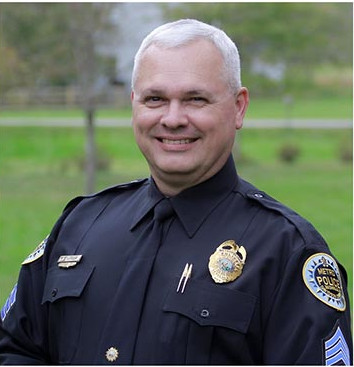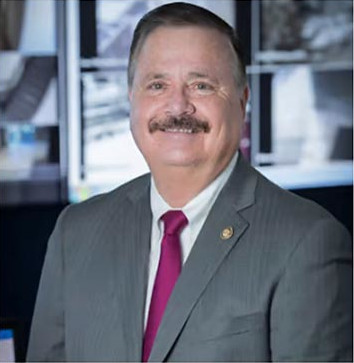Special Report
The state of the workforce: Hiring, rehiring and retaining qualified security
There are a number of factors compounding the challenging state of the workforce right now, but security leaders say it’s not all doom and gloom.

onurdongel/ iStock / Getty Images Plus via Getty Images
Hiring and retaining qualified security staff is one of the biggest challenges for business leaders. Indeed, security leaders across all sectors identified staffing and training as one of the Top 10 Critical Issues facing the industry in the 2021 Security Benchmark Report.
Of course, security departments are not the only departments challenged by workforce conditions right now. In almost every sector tracked by the U.S. Bureau of Labor Statistics, workers are quitting at or near the highest levels on record, going back to when tracking began in 2001.
There are reports of employees leaving the workforce in record numbers across all sectors as well as jobs being left open and not able to be filled with qualified candidates. Some 4.3 million people quit their jobs in August 2021 — about 2.9% of the workforce, according to the U.S. Department of Labor.
ZipRecruiter reported that many workers are looking to change jobs, industries and positions, weighing the risk versus reward ratio of where they are at and where they want to be. The job website says that some 20% of people looking for employment say they want remote positions or flexibility from where they were previously.
 Sergeant John Pepper, CSSP, Supervisor of the Secondary Employment Unit at the Metropolitan Nashville Police Department. Image courtesy of Pepper
Sergeant John Pepper, CSSP, Supervisor of the Secondary Employment Unit at the Metropolitan Nashville Police Department. Image courtesy of Pepper
 Richard Fenton, CSSP, Vice President and CSO, Corporate Security & Safety, Ilitch Holdings Inc. Image courtesy of Fenton
Richard Fenton, CSSP, Vice President and CSO, Corporate Security & Safety, Ilitch Holdings Inc. Image courtesy of Fenton
 Lou Marciani, Director and Co-Founder, Innovation Institute for Fan Experience. Image courtesy of Marcoani
Lou Marciani, Director and Co-Founder, Innovation Institute for Fan Experience. Image courtesy of Marcoani
“It’s a huge issue,” says Jim Sawyer, Director of Security Services at Seattle Children’s Hospital. “I have never seen such a shortage of qualified people — not ever. It is just tough and, hopefully, a temporary development.”
But the current challenges go beyond a generation of workers reevaluating their lives and their jobs. The COVID-19 pandemic has been extremely disruptive to the labor market in other ways as well. In March and April 2020, during the first worldwide shutdowns, more than 20 million workers lost their jobs — at one point, more than 1 million workers were being laid off each day — because companies shuttered permanently or temporarily with the crashing economy. Many employees were furloughed, fired or not asked to return as companies shut down consumer-facing businesses or venues. Generous unemployment benefits from the government kept some people from coming back to low-paying or hourly wage jobs as well, experts say.
As we live in the state of the ongoing COVID-19 pandemic, current conditions include city, county, state and country-wide guidelines regarding travel, shutdowns, mask mandates, and testing and vaccine requirements. Changing guidelines further complicate matters for hiring organizations and also deter some potential employees from searching for work.
In the sports and entertainment sector, where event-based security is needed, many organizations have opened to 100% or near 100% capacity while running at 60% capacity or less for staffing, says Lou Marciani, Ed.D., Director and Co-Founder at the Innovation Institute for Fan Experience. “If we had to prioritize all the needs of the entertainment and sports industry, I think 100% of the response would include workforce issues facing these organizations.”
Marciani says that the sports industry reportedly lost a collective $15 billion during early COVID-19 shutdowns, equating to more than 20,000 canceled events in the U.S. Festivals, cultural events and other entertainment events reportedly lost around $8 billion as shows closed and canceled in 2020.
“Now, as organizations are able to host events and reopen, getting the workforce to come back has also created issues. There are so many jobs open, but low wages and lack of benefits have hurt us; generous unemployment has hurt us; hesitancy surrounding COVID-19 and mass gatherings has hurt us; and employee mindsets and expectations have changed a great deal,” Marciani says.
Reports of both workplace violence incidents, simple assaults and verbal abuse have risen among a variety of sectors as the COVID-19 pandemic and social unrest continues. Some frontline security employees have been hesitant to put themselves in situations of potential violence, uncomfortable customer interactions, or large-group gatherings where they could get sick.
A study conducted by Howard University estimates that social distancing measures increased domestic violence incidents by roughly 6%, or more than 24,000 cases during the first few weeks of the pandemic last year. In the U.K., research from Co-op (which operates 2,600 food stores and over 1,000 funeral homes) revealed that one in five customers admit to having been aggressive or abusive toward a shop worker over the course of the first eight months of the pandemic.
The Federal Aviation Administration reported 5,033 incidents of unruly passengers as of November this year, 3,642 of which were related to mask-wearing. The Association of Flight Attendants found that 85% of flight attendants reported dealing with unruly passengers, and nearly one in five reported experiencing a physical incident in 2021.
Compensating for a Shortage
“There was a time when we had a waiting list of people wanting to work for us, but it’s certainly more challenging now,” says Richard Fenton, CSSP, Vice President and CSO, Corporate Security & Safety at Ilitch Holdings Inc., a private company that owns the Detroit Red Wings, Detroit Tigers, six venues including an arena, stadium, theater and three amphitheaters, a distribution company, as well as food companies, including Little Caesars. “COVID is still here, but we are emerging and learning to live with it as individuals, as families and as businesses. Our events-based workforce has shrunk by almost two-thirds,” Fenton says. To compensate, Fenton says the company is relying on contract officers more than in the past, but those organizations are struggling to find qualified staff as well.
Sgt. John Pepper, CSSP and Supervisor of the Secondary Employment Unit at the Metropolitan Nashville Police Department, says that the city of Nashville is receiving increased requests from private sector businesses to staff events, functions and facilities. Not only do enterprise security leaders need qualified security staff, but they also need to have a certain number of fire, police or medically trained staff members in person to meet local regulations. “It’s complicated by a number of factors because staffing of police is down across the country as well. We are losing experienced personnel as they leave, retire or move to other jobs, just like security. In addition, many cities and health departments have mandates surrounding vaccinations, testing or masks, and some people don’t want to meet those requirements,” Pepper says.
In Nashville, for example, he says the workforce challenges are further complicated by the local government staffing extra resources to address an increase in negative behaviors in entertainment areas where people began to socialize after COVID-19 quarantines and restrictions began to relax. “Often, these assignments were filled in an overtime capacity when assignments were not filled by volunteers. After nearly two years of disasters such as flooding, tornadoes, civil unrest and a Christmas Day bombing, officers are exhausted. They’ve spent many hours away from their families and simply are not volunteering to take on extra duty assignments,” he explains.
In addition to turning to local police departments and contract security companies for help, enterprise security teams are getting through these times in a number of other ways.
“Management teams are picking up a lot of additional responsibilities,” Marciani says. “Another way we are seeing organizations compensate is through a better use of technology, cameras, ticketless systems, access control, etc.”
Pepper says he has seen security teams compensate with unmanned physical barriers, locked entrances, cameras, key cards and even getting rid of bags within venues, so there is less for security staff to search when attendees walk through the door. “I’ve also seen places adopt passive security measures and mechanical means of security to handle less staffing,” he says.

skynesher/ E+ via Getty Images
Attracting and Retaining Talent
While compensating for an understaffed security team in the short term is a necessity, security leaders are also focused on reevaluating how they are attracting qualified talent as workforce challenges ease. “Private sector groups are certainly increasing hourly wages. We are seeing hiring bonuses too, which is unheard of in security guarding functions but necessary in some instances to get some of these folks back to work,” Pepper says.
Many organizations, contract guarding companies and law enforcement agencies have looked at increasing wages, but Fenton says security leaders must also be creative with what they are offering potential employees in addition to wage increases — an idea that appears to be particularly apropos right now as many employees reevaluate their positions and their careers.
“We’ve done a lot of things here,” Fenton says. “On the full-time side, those full-time benefits really help. On the event-based side, we’ve certainly increased wages and are even paying employee signing bonuses, but we have also thought about how we can make the jobs more fun and create a positive employee-centric environment because we have found that to be important to the new generation of workers now. We’ve tried to go beyond pay and benefits.”
Fenton says that some of those creative benefits include parking spots, lunches, bonuses for working multiple events, uniforms, raffles, sports gear or event tickets. Though event-based security certainly can’t go fully remote, Fenton says security teams can offer online training and meetings to engage colleagues virtually and allow them the benefit of not traveling to the facility during that time. “Maybe we didn’t have to do those things before, but now we do. These are all important, and people are responding to those things, particularly the younger folks,” he says.
Appreciation is an especially important factor to certain generations that make up today’s workforce, whether in hourly jobs or full-time management roles. According to the Society for Human Resource Management, 79% of millennial and Gen Z workers say an increase in recognition and rewards would make them more loyal to their employer.
“Recognition is the best way to boost employee engagement, productivity and profit while significantly strengthening your culture,” says David Friedman, author of Culture by Design: How to Build a High-Performing Culture Even in the New Remote Work Environment.
Marciani adds that security leaders need to reflect on what they are offering and really pay attention to the generational differences of employees right now, being sure to offer something for every generation. “I think it’s very important to stop and look at who our employees are, what generations they are and match that. Some of the younger generations want security in a job, they want to be educated, and they want to grow. That is causing management to look at continuing education, better training and fun ways to engage employees with games and giveaways,” he says. “Seniors or some of the older generations may be more concerned with the work environment, fan behavior or cleanliness. So, it’s important to show them that the work environment is addressing their needs there and protecting them as well.”

somboon kaeoboonsong / iStock / Getty Images Plus via Getty Images
The Future of the Security Workforce
Though these current workforce times are challenging, most security leaders believe that conditions are starting to and will continue to improve — albeit, perhaps slowly.
“We are already starting to see a slow but steady return,” Fenton says. “We are not where we need to be, but I do think in the next five or six months, we will reach numbers we had before. That’s heartening, and I think part of that will continue as stimulus goes away, people want to start working again, and positive trends such as vaccinations and comfort levels improve.”
Pepper agrees. “We are in a transition period, and things will improve. What people expect and what people can provide right now is a little disparate, but it will come together. It just won’t change overnight,” he says.
“We may be in turmoil right now, but we will work our way out of as an industry,” Marciani says. “We are going to see further engagement with security technology to alleviate some of these issues going forward, such as drones, more ticketless systems, sensors and smart cameras. It will be a turning point to supplement the workforce. We will always need the staff, but we can continue to use our staff better while meeting the needs of the employee of today.”
Editor’s Note: Jeff Hauk, Director of Public Safety at Memorial Healthcare recently presented a Security Solutions by Sector webinar on workforce challenges and finding, retaining and developing security talent in the healthcare sector and beyond. Click here to watch the on-demand webinar now.
Looking for a reprint of this article?
From high-res PDFs to custom plaques, order your copy today!






